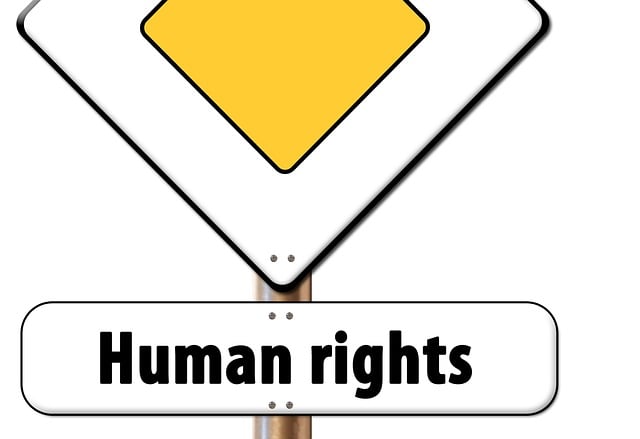Understanding Mental Health Law is essential for advocating on behalf of individuals with psychiatric conditions, ensuring their rights are protected. This legal framework, varying by region but commonly addressing access to treatment, confidentiality, due process, and accommodations, navigates complex systems and promotes fairness. Advocacy groups champion these rights, educating, raising awareness, and challenging systemic issues to create an inclusive society for those with mental health conditions. Effective communication strategies empower clients, while case studies demonstrate the impact of strategic advocacy on individual lives and legal victories have led to improved access to treatment. The future of mental health law includes personalized care and technological advancements, but balancing innovation with protection remains crucial.
“In the intricate landscape of mental health care, understanding the law is a cornerstone for effective advocacy. This comprehensive guide delves into the multifaceted world of mental health law and its profound impact on individual freedom and dignity. From deciphering legal rights in mental health cases to mastering communication strategies with clients, we explore key aspects.
Through real-world case studies, we highlight successful advocates’ journeys. Additionally, we gaze into future trends, ensuring preparedness for emerging challenges in this dynamic field, all while emphasizing the vital role of advocacy in protecting the rights of those navigating mental health issues.”
- Understanding Mental Health Law: A Foundation for Advocacy
- Navigating Legal Rights in Mental Health Cases: An Overview
- The Role of Advocacy in Protecting Individual Freedom and Dignity
- Strategies for Effective Communication with Mental Health Clients
- Case Studies: Notable Wins in Mental Health Law Advocacy
- Future Trends and Challenges in Mental Health Law and Advocacy
Understanding Mental Health Law: A Foundation for Advocacy

Understanding Mental Health Law serves as a cornerstone for advocacy, ensuring that individuals with psychiatric conditions are afforded their rightful rights in mental health cases. This legal framework encompasses a range of laws and regulations designed to protect vulnerable populations, promote fairness, and guarantee access to quality care. By mastering these laws, advocates can effectively navigate complex systems, advocate for clients’ needs, and ensure their rights are upheld throughout the process.
Mental Health Law provides a structured approach to addressing issues like discrimination, commitment procedures, treatment options, and rehabilitation. It emphasizes the importance of individual autonomy, informed consent, and due process, ensuring that every person receives ethical and respectful care. Armed with this knowledge, advocates can challenge systemic injustices, defend against unlawful practices, and foster positive change in mental health services.
Navigating Legal Rights in Mental Health Cases: An Overview

Navigating Legal Rights in Mental Health Cases presents a unique set of challenges and considerations. Individuals facing mental health issues often require specialized support and advocacy to ensure their rights are protected. Understanding these rights is crucial for both patients and advocates, as it enables effective navigation through complex legal systems.
Mental health laws vary across jurisdictions, but common areas of focus include access to appropriate treatment, confidentiality, due process, and accommodations in various settings like hospitals, schools, and workplaces. Knowledge of these rights empowers individuals to advocate for themselves, ensure ethical practices, and hold institutions accountable.
The Role of Advocacy in Protecting Individual Freedom and Dignity

Advocacy plays a pivotal role in protecting individual freedom and dignity within mental health cases. It acts as a powerful tool to ensure that those facing mental health challenges are treated with respect, fairness, and equality before the law. Mental health advocates champion the rights of individuals, pushing for access to adequate care, informed consent, and non-discriminatory practices. By raising awareness and challenging systemic issues, advocacy helps to create an environment where people with mental illness can thrive without fear of stigma or abuse.
In safeguarding rights in mental health cases, advocates work tirelessly to ensure that legal processes are fair and just. They provide support to individuals navigating complex systems, ensuring their voices are heard and their choices respected. Through education, outreach, and direct intervention, advocacy groups foster understanding and empathy, ultimately contributing to a more inclusive and supportive society for those living with mental health conditions.
Strategies for Effective Communication with Mental Health Clients

Effective communication is key when advocating for clients with mental health issues, as these interactions can significantly impact their understanding and engagement in their legal rights. One crucial strategy is to establish a safe and non-judgmental environment, fostering trust and encouraging open dialogue. This may involve explaining complex legal concepts in simple language, using visual aids or examples relevant to the client’s experiences, and actively listening to their concerns and perspectives.
Additionally, advocating for mental health clients requires a nuanced approach to communication. Recognizing and respecting their unique challenges, such as cognitive difficulties or social anxiety, can enhance your ability to assist them. Providing clear, consistent information, offering multiple communication channels, and allowing adequate time for responses can all contribute to successful advocacy. Ensuring clients are aware of their rights in mental health cases and empowering them to participate actively in decisions regarding their care is an essential part of this process.
Case Studies: Notable Wins in Mental Health Law Advocacy

In the realm of mental health law and advocacy, case studies often serve as powerful examples of successful strategies and their impact on individual lives and societal perceptions. Notable wins highlight the importance of robust legal representation and the protection of rights in mental health cases. For instance, a landmark decision in a high-profile case involving a young adult with severe depression led to groundbreaking changes in commitment laws, ensuring that individuals’ freedoms are respected while still providing necessary support.
These victories often involve intricate legal arguments centered around due process, privacy, and the right to informed consent. Through meticulous documentation of clients’ journeys, advocates have successfully challenged systemic issues, leading to improved access to treatment and more humane approaches to mental health care. Such cases not only bring attention to the complexities of mental health law but also serve as a compass for future advocacy efforts.
Future Trends and Challenges in Mental Health Law and Advocacy

The future of mental health law and advocacy is brimming with potential for progress, yet also presents unique challenges. As societal awareness expands regarding mental wellness, legal frameworks are evolving to protect and promote the rights in mental health cases. Increasingly, courts are recognizing the importance of individualized care and support for those with serious mental illnesses. This shift promises enhanced access to treatment and more equitable outcomes.
However, navigating these trends also reveals complex challenges. The integration of new technologies, such as digital health tools and remote therapy, raises ethical considerations surrounding data privacy and informed consent. Additionally, addressing the stigma associated with mental illness remains paramount, as it impacts not only individuals’ willingness to seek help but also the quality of care they receive. Balancing these developments while ensuring the protection and empowerment of individuals navigating the mental health system will be key in shaping a more just and effective legal landscape.
